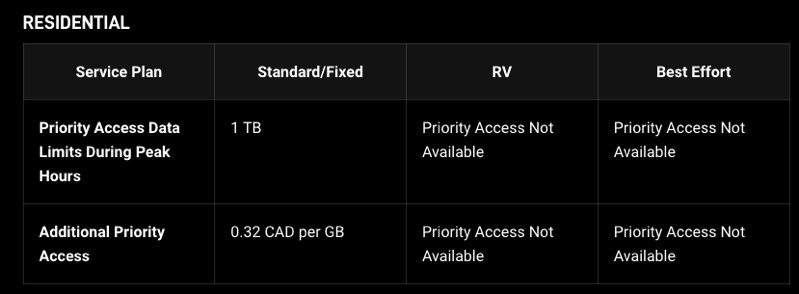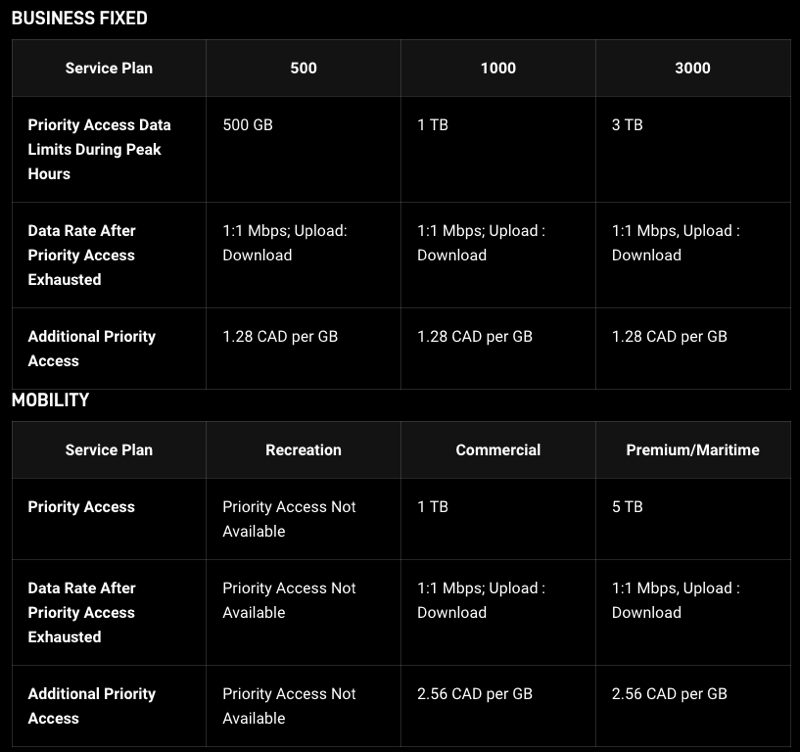
SpaceX Delays Starlink Fair Use Policy for US and Canada to 2023

In early November, SpaceX announced a new Fair Use policy for its Residential customers in the US and Canada, along with all Business and Maritime customers.
The new policy was set to begin in December 2022, but now SpaceX has delayed the policy, according to an update on its website. The plan would offer up to 1TB of Priority Access per month for these customers and going over this cap would result in downgraded Basic Access for the rest of the billing cycle.
“To ensure our customer base is not negatively impacted by a small number of users consuming unusually high amounts of data, the Starlink team is implementing a Fair Use policy for Residential customers in the US and Canada and all Business/Maritime customers beginning February 2023,” said SpaceX on its Starlink FAQ page.
SpaceX says starting in February 2023, these customers “will have the option to opt-in to the automatic purchasing of additional Priority Access at any time from within their account, even before exceeding their Priority Access data usage limit.”

Customers that opted-in will be charged for extra Priority Access on a per gigabyte basis, at prices linked to their specific service plan as per the Starlink Fair Use Policy. The charge above details Canadian Additional Priority Access for example, billed at $0.32 CAD per gigabyte for Residential customers.
You can see extra rates for Business and Mobility customers in CAD dollars below. Business customers in Canada will pay $1.28 CAD per gigabyte for Additional Priority Access, while Commercial and Premium/Maritime customers will pay $2.56 CAD per gigabyte extra.

SpaceX says less than 10% of Starlink subscribers in the U.S. and Canada currently use more than 1 TB of data per month, so the Fair Use policy will only apply to those that use large amounts of data. Also, SpaceX says any Starlink data used between 11 p.m. and 7 a.m. will not count towards their Priority Access cap.
Earlier today, it was reported SpaceX was granted permission by the FCC to launch up to 7,500 of its next-gen Starlink satellites.
Thanks @VirtuallyNathan

